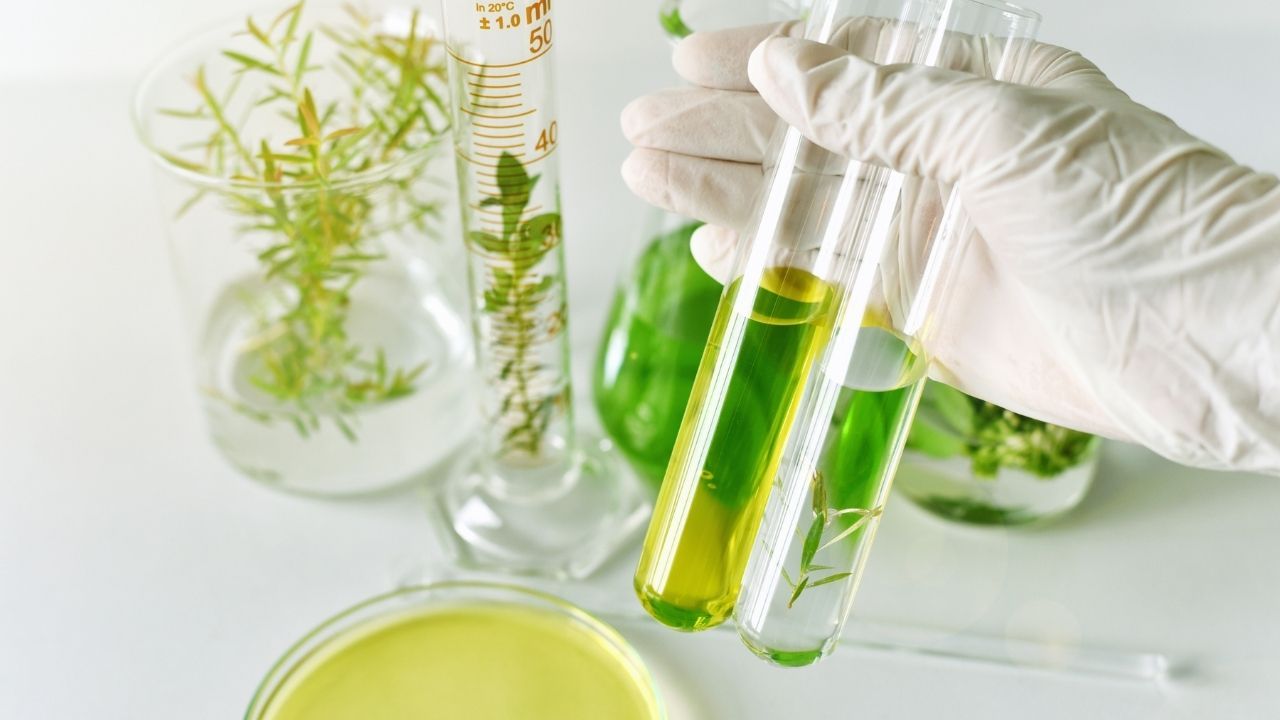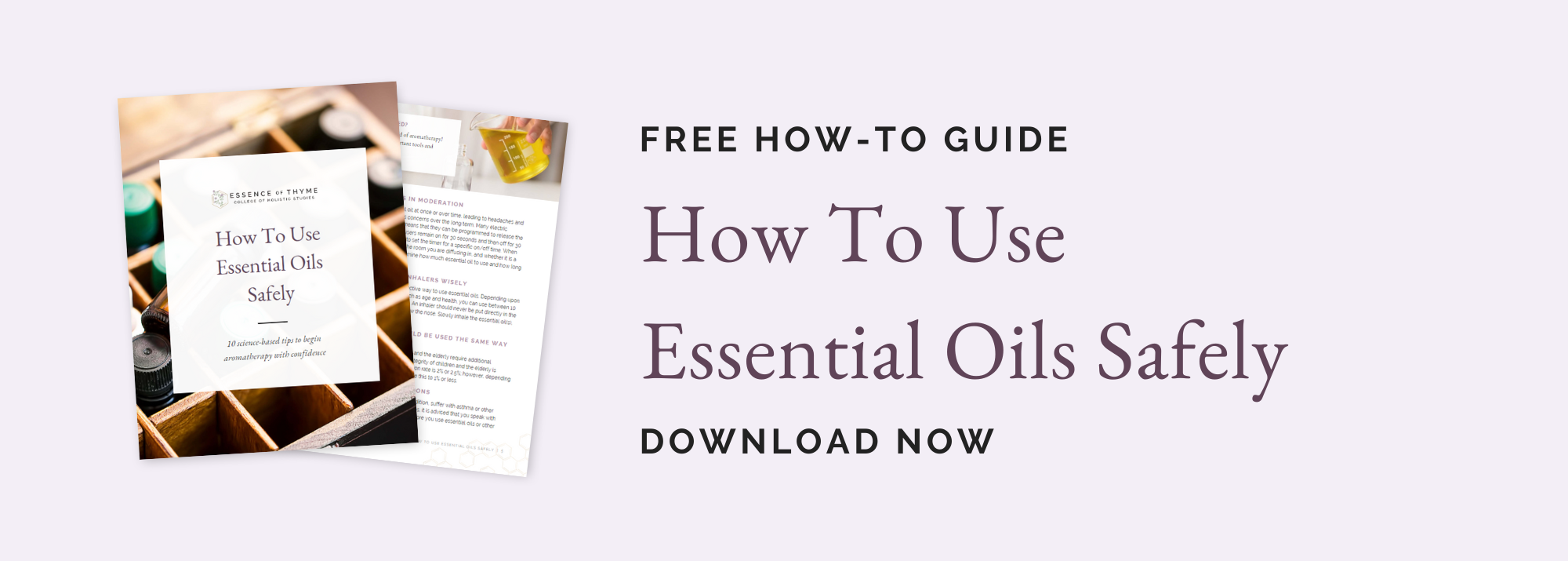Chemical Free: The Irony

You have probably been inundated with advertisements from companies declaring their products to be chemical free. You may have even purchased products based upon these claims.
What if I were to tell you that nothing is chemical free? Our bodies are composed of approximately 60% oxygen (O), which is a chemical element. Other chemical elements that comprise the human body are carbon (CO2), nitrogen (N), calcium (Ca), and phosphorus (P). Our very DNA is composed of chemical bases adenine (A), guanine (G), cytosine (C), and thymine (T). The Cambridge Dictionary defines a chemical as “any basic substance that is used in or produced by a reaction involving changes to atoms or molecules” ("Chemical," n.d.).
The air we breathe is made up of chemical elements. We may say that we are not getting enough oxygen when we are having difficulty breathing, but in fact, air is primarily composed of nitrogen (78%), with oxygen a distant second at only 21% of air. Can you imagine saying, “I am not getting enough nitrogen”?!
The truth is, there are over 50 million known chemicals, and each plays a role in our lives. Have you heard people say, if you can’t pronounce an ingredient on a label, you shouldn’t use the product? Occasionally, I like to add a little beta-fructofuranosyl alpha-D-glucopyranoside to my epigallocatechin gallate, l-theanine, and potassium beverage that I enjoy in the evening. Translation? I sometimes like to add a little sugar to my evening green tea.
Do not buy into the chemical-free hype!!
We should not be afraid of chemicals. They make us who and what we are. They can govern our physical, mental, and emotional health. The key is knowing what a chemical is, what different forms it can take, what benefits and liabilities are, if ingested, how it is metabolized by the body, and how much is safe to use.
Last month, an elderly couple in Malaysia died because of eating pufferfish, which is a delicacy in Asia. Pufferfish contains tetrodotoxin and saxitoxin, which are found in the liver and gonads of certain fish, shellfish, and amphibians. All of these can be consumed if they are cleaned and prepared properly, with all the toxins removed. However, this couple didn’t know what they had purchased at the fishmongers and simply fried it for dinner. Both became ill very soon after eating the fish.
One of the most toxic substances known to humankind is a natural occurring toxic called botulinum. Just a minuscule amount of this toxin is fatal because it can cause muscle and respiratory paralysis. But this toxin is employed clinically as Botox specifically for its ability to paralyze a certain area of the body. In addition to its use as a cosmetic procedure, Botox is used for overactive bladders, migraines, excessive perspiration, and twitching. The difference between a toxic reaction and a beneficial reaction is a closely calibrated dosage used in a way that has been deeply researched and studied in experimental trials before being used in a clinical setting.
Natural vs. synthetic: neither is “chemical free”
Natural vs. synthetic is another topic that seems to tie into “chemical free.” Both have a place at the table and should not be dismissed without knowing how each can benefit us or harm us. Natural products are defined as something produced by nature without any human intervention. Synthetic products are human made and contain synthetic chemicals and may also contain some natural chemicals. Natural and synthetic products can each be organic. Synthetic organic chemicals are man-made substances containing carbon atoms that are not naturally occurring.
The Collins Dictionary defines the word natural as things that “exist or occur in nature and are not made or caused by people” ("Natural definition and meaning," n.d.). Based upon this definition, certain things that we assume are natural technically are not. This applies to essential oils, absolutes, CO2 extracts and hydrosols among many other things. Essential oils start out as volatile organic compounds (VOCs) in plants. But, to access them for use in aromatherapy, the plant material which contains the VOCs must be distilled or extracted in some way. Therefore, these products, which are “caused by” distillers or extractors, are not strictly natural based on the definition. Does this make them less beneficial? It does not!
Aromatherapy and natural products are not always safe
We can apply all this information to our language around the use of aromatherapy and the associated products such as essential oils, CO2 extracts, absolutes and hydrosols. We can understand that some “natural products” are not always safe, or at least not safe in certain circumstances. A wise Swiss physician, Theophrastus Phillpus Aureolus Bombastus von Hohenheim (1493–1541), is known for his novel approach to medicine and philosophy which included observation and experience. He stated that “All things are poison, and nothing is without poison: the dose alone makes a thing not poison.”
Often the same companies that manipulate the unsuspecting consumer with the chemical free propaganda are promoting the unsafe use of essential oils and other aromatic substances. Essential oils and other extracts have myriad benefits in aromatherapy for the physical, emotional, and mental systems of the body. These substances are extremely concentrated, and, when used in the correct amount, with the appropriate method of application, and when certain considerations have been taken into consideration, e.g., health, age, and chemical composition of the oil being used, are safe.
For more information about the wonderful benefits of essential oils, we invite you to download our free guide, How To Use Essential Oils Safely, below. You'll also automatically get our newsletter, which includes free recipes created by aromatherapy experts and first notice of special events and new course offerings.
If this has inspired you and you would like to learn even more, we offer online aromatherapy programs for every level of interest, whether you want to create safe and effective blends for yourself and your family, or whether you'd like to become a professional aromatherapy practitioner. Learn more about our programs.


Article by: Colleen Thompson, Cert Ed, MIFPA, RA®, EOT®, CA
For over 25 years, Colleen Thompson has been a passionate and highly respected aromatherapy educator. She has owned 3 aromatherapy stores and a holistic spa, and she founded Essence of Thyme in 1995, where she mentors budding aromatherapists from all over the world, helping them create their own thriving aromatherapy businesses.
About Essence of Thyme College of Holistic Studies
Essence of Thyme College of Holistic Studies offers 300- and 630-hour professional aromatherapy certification programs that help you grow a successful, fulfilling career by specializing and creating your market niche. Professional Level Certification prepares graduates to become aromatherapy consultants, launch product lines or retail businesses, or provide services as an adjunct to existing holistic health specializations. Master Level Certification and electives are ideal for certified aromatherapists seeking higher education or a path to clinical aromatherapy practice.
All Essence of Thyme programs focus on aromatherapy product development and advanced formulation, evidence-based research, spa and business management, international industry regulatory guidelines, and sustainability and conservation of essential oil and carrier oil-bearing plants.
Our comprehensive, evidence-based programs meet or exceed the criteria set forth by 5 international professional aromatherapy associations. Learn more about our aromatherapy certification programs.
References
Chemical. (n.d.). Cambridge Dictionary | English Dictionary, Translations & Thesaurus. Retrieved May 7, 2023, from https://dictionary.cambridge.org/us/dictionary/english/chemical
Chen, H. (2023, April 10). Elderly couple dies after eating poisonous pufferfish in Malaysia. CNN. https://www.cnn.com/2023/04/10/asia/elderly-couple-malaysia-pufferfish-death-intl-hnk/index.html
Hargrave, J. G. (2023, March 1). Paracelsus. Encyclopedia Britannica. Retrieved May 7, 2023, from https://www.britannica.com/biography/Paracelsus
Natural definition and meaning. (n.d.). Collins English Dictionary. Retrieved May 7, 2023, from https://www.collinsdictionary.com/dictionary/english/natural
Synthetic organic chemicals: Definition & examples. (n.d.). Study.com. https://study.com/academy/lesson/synthetic-organic-chemicals-definition-examples.html


